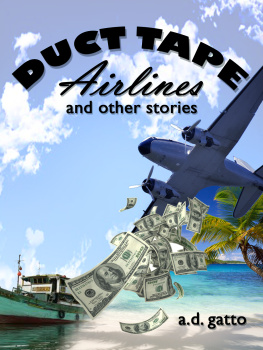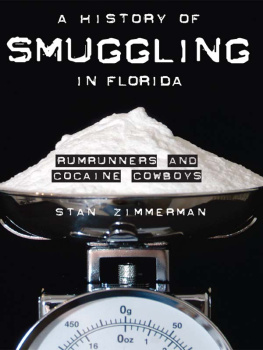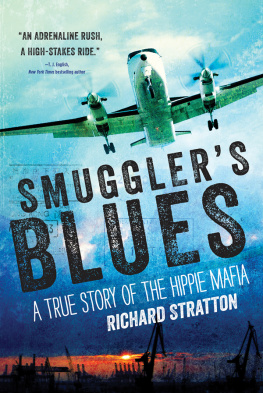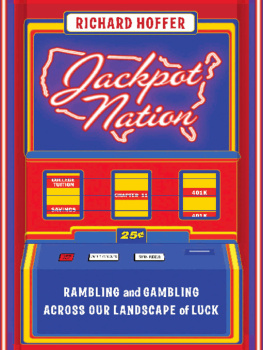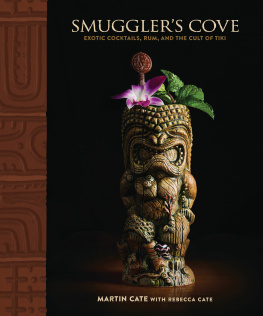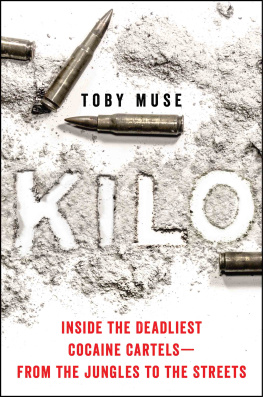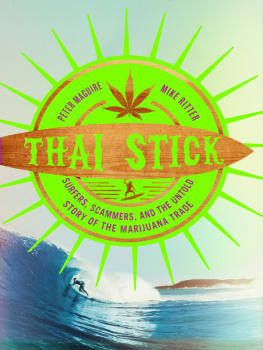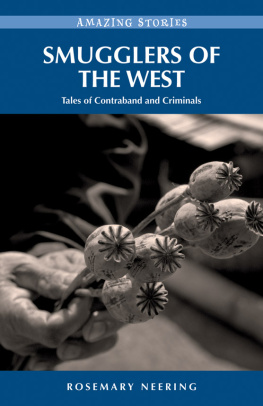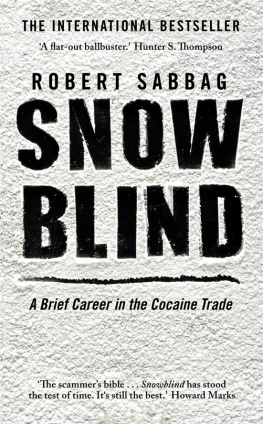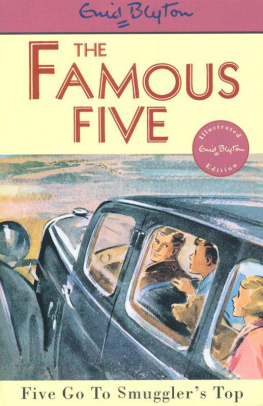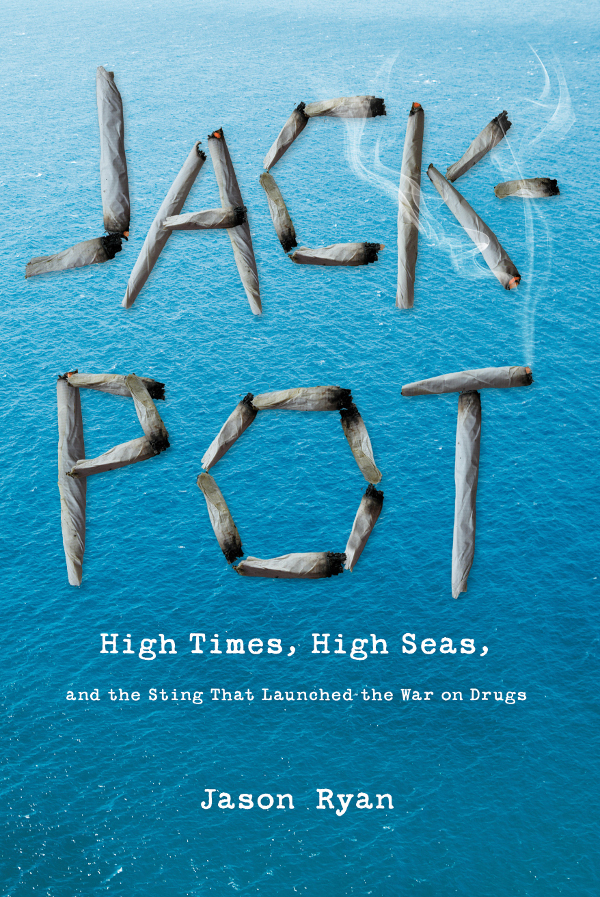
To Elizabeth, who provided love
and encouragement from the start.

Copyright 2011 by Jason Ryan
ALL RIGHTS RESERVED. No part of this book may be reproduced or transmitted in any form by any means, electronic or mechanical, including photocopying and recording, or by any information storage and retrieval system, except as may be expressly permitted in writing from the publisher. Requests for permission should be addressed to Globe Pequot Press, Attn: Rights and Permissions Department, P.O. Box 480, Guilford CT 06437.
Lyons Press is an imprint of Globe Pequot Press.
Text design by Sheryl Kober
Library of Congress Cataloging-in-Publication Data
Ryan, Jason.
Jackpot : high times, high seas, and the sting that launched the war on drugs / Jason Ryan.
p. cm.
Includes bibliographical references and index.
ISBN 978-1-59921-976-9
1. Drug trafficUnited States. 2. MarijuanaUnited States. 3. Drug control United States. I. Title.
HV5825.R93 2011
363.450973dc22
2010054487
Printed in the United States of America
10 9 8 7 6 5 4 3 2 1
Charleston, South Carolina
August 2008
T he wind whipping through downtown Charleston mattered little to the young girl throwing Pop-Its firecrackers on the sidewalk of Meeting Street, her arm flinging the paper-wrapped explosives to the bluestone. They snapped despite swift gusts that feathered their fall. Farther along, the wind tossed the hair of the family posing for a picture in front of a mansion, and gusted past the women selling sweetgrass baskets a block away on the steps of the citys main post office, next to the Charleston Federal Courthouse. The craftswomen struggled to control the flapping blankets placed beneath their woven wares, and one wondered if they feared seeing their larger, and most expensive, baskets blown halfway across town$400 tumbleweeds skipping down cobblestone streets and racing past the creaking wooden wheels of tourist-filled horse-drawn carriages.
The blustery weather was a welcome reprieve from South Carolinas crippling August heata gift from Tropical Storm Fay, which zigzagged across Florida. Perhaps especially grateful were the South Carolina lawyers spared from sweating in their suits that week, including the pair heading to the federal courthouse for a sentencing hearing in the case of United States of America v. Ashley Brunson.
The federal courthouse and its annex stood with the post office on the southwest corner of Charlestons storied Four Corners of Law. Sharing the intersection were City Hall, the Charleston County Courthouse, and St. Michaels Episcopal Church. Inside the old buildings of granite, marble, stucco, and brick, one could conveniently seek resolution in matters within municipal, local, federal, and spiritual jurisdictions, should one have that many problems. Ashley Brunson, for his part, had just one problem, though it was a serious one: his guilty plea two months earlier to a federal felony charge of conspiring to import tons of marijuana and hashish into the United States. More remarkable than the substance of his crime was that it had occurred three decades earlier. Brunson had dodged the long arm of the law for more than twenty-five years, spending much of that time sailing across the world. He now sat in Courtroom 2, handcuffed, awaiting his punishment.
Courtroom 2 was small, no bigger than a classroom, and its pews held only a few spectators the morning of August 21, 2008. Considering Brunson had spent a lifetime on the run, the tiny crowd and absence of news crews wasnt surprising. The man had been forgotten.
He had been arrested a year earlier at the southern border of the United States, trying to enter California from Mexico with a passport bearing the name of a deceased man from Chicago. For decades he had used the alias without a problem, obtaining the false identification in 1985 and renewing the passport without incident in Seattle in 1995 and in Hong Kong in 2005. For some reason his passport raised a red flag on his entry to the United States in June 2007, and his fingerprints rang a match with the National Crime Information Center, revealing him as a wanted man. The computer database didnt forget that Robert Ashley Brunson had been wanted since 1983, a fugitive from the largest drug investigation in South Carolina historyOperation Jackpot. Brunson had outlasted more than a hundred other men and a handful of women who went to jail for smuggling-related crimes. He was the last of South Carolinas gentlemen smugglers.
The only other remaining fugitive was his wife, Kathy, who hunkered down at their home in Mexico. In exchange for her freedom, Brunson pleaded guilty to helping smuggle sixty thousand pounds of marijuana and hashish into the United States. He had been tempted to fight the charges, to force the government to prove beyond a reasonable doubt his involvement in smuggling ventures that occurred nearly three decades ago. Brunson and his lawyer knew the governments roster of witnesses had been depleted in recent years, with key smugglers and kingpins passing away. Other potential witnesses refused to talk, just as they had during related trials held decades earlier. But Brunson chose to spare his wife the chance of incarceration, pleading guilty so long as the government agreed to leave her alone and drop the charges against her.
During a plea hearing two months earlier, Assistant U.S. Attorney Robert Jendron, a veteran federal prosecutor in South Carolina, outlined Brunsons offenses, which included driving a car loaded with hashish on June 9, 1980. Working by faint moonlight that night, Brunson helped transfer thirty thousand pounds of hashish off the seventy-one-foot ketch Second Life, which had just arrived at an abandoned dock near Hilton Head Island, South Carolina, after sailing for more than two months from war-torn Beirut, Lebanon.
As it turned out, they were short of drivers, Brunson told Chief U.S. District Judge David C. Norton at his plea hearing. And I mistakenly volunteered.
No good deed goes unpunished, the judge responded, wryly.
Jendron continued detailing the smuggling that occurred that evening. The prosecutor had devoted much of his career to Operation Jackpot, including four busy years in the 1980s when the bulk of Brunsons coconspirators were brought to justice, many hauled into courtrooms after dramatic captures across the country and world. Jendron was the only federal prosecutor remaining in the U.S. attorneys office from the Jackpot years, his colleagues from that era all using the investigations success as a springboard to other prominent positions.
Jendron noted Brunsons position as a crewman on the Love Affair, a forty-one-foot sailboat stopped by the Coast Guard off the Bahamas in November 1978, its cabin stuffed with nearly eight thousand pounds of Colombian pot. The Coast Guard had decided to perform a safety check of the sailboat after spying it one evening forty miles west of the island Great Inagua, its running lights suspiciously turned off., The check for proper safety equipment would oftentimes result in the discovery of more serious infractions, as it did this time, when the Coast Guard boarding party couldnt help but notice the abundance of pot packed below deck.
It was another time they needed an extra crew member, and I volunteered, Brunson said to Norton.
Now, at the sentencing hearing, with the wind blowing outside, the sixty-year-old Brunson was again before Norton, calmly seated and wearing a striped prison jumpsuit and glasses, his gray hair neatly combed. Brunsons lawyer, Diedreich von Lehe III, asked the judge to consider Americas changed attitudes and laws toward drugs since Brunson committed his crimes.
Next page

